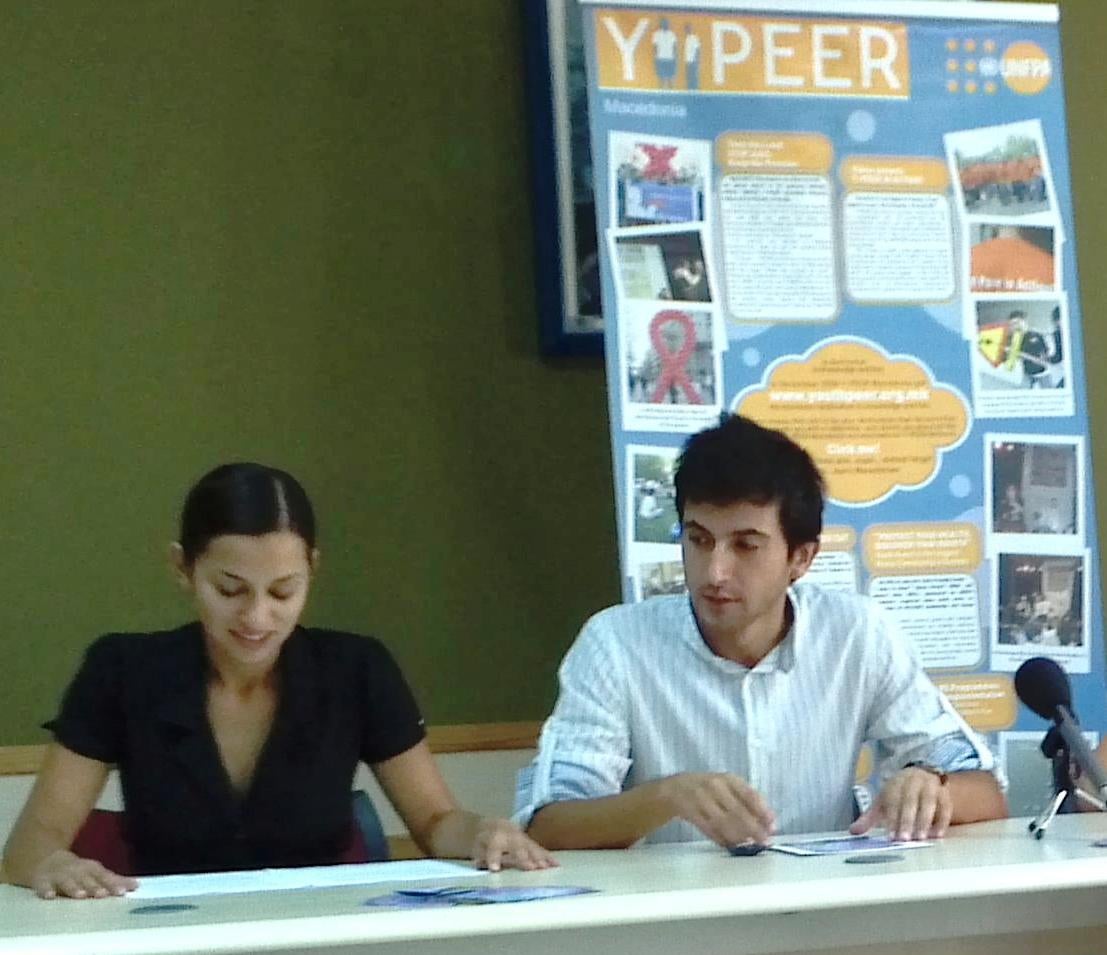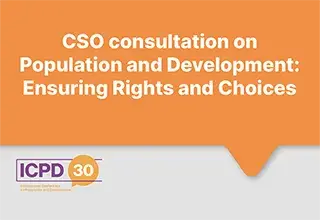“You cannot only leave policy-making on youth issues to people who are in their 50s or 60s.” Damjan Nikolovski, 24, a youth activist from the Former Yugoslav Republic of Macedonia’s capital Skopje, is adamant about the need to make the voices of young people heard when decisions are made about their lives.

Things have changed since the current generation of decision-makers in politics were young themselves, says Damjan, who is part of a movement that has changed the way youth policy is made at the national level. He believes the input young people can provide in the youth policy-making process is probably the best the government can get.
Damjan’s confidence derives from years of volunteer work for the national chapter of Y-PEER, the Youth Peer Education Network, which in recent years has evolved from a provider of peer-to-peer education to a full-blown advocacy movement working on a wide range of youth issues.
As many other activists of his generation, Damjan was drawn into the national youth movement as a teenager through trainings offered by Y-PEER. The network had been set-up by UNFPA in several countries across Eastern Europe in the early 2000s to help young people teach each other about contraception, HIV prevention, relationships and other sexual and reproductive health issues.
He says his involvement with Y-PEER changed his life: “I am a totally different person now. My approach to life has changed completely: it is not about having fun, it is not about only me, but about being a responsible citizen and taking action affecting the lives of other young people who may not be as fortunate as I am.”
The slogan used during a recent campaign, “Nothing for us without us!,” sums up what drives Damjan and many other young people in the country in their effort to get involved.
The network, now comprising some 20 NGOs and thousands of activists, has become an indispensable partner for the government in formulating youth-related policies and a powerful commentator in debates affecting young people in the country.
For example, in 2011, network members managed to halt the adoption by parliament of a new youth law until it was properly discussed with the participation of young people. Currently, Y-PEER is actively involved, with UNFPA support, in the review of Macedonia’s national population strategy.
The network’s successful work has reverberated at the highest levels of the country’s political system. In a recent letter, President Gjorgje Ivanov congratulated the youth movement on its achievements and expressed his support for youth activism and the inclusion of youth in decision-making.
For Damjan, such recognition serves as encouragement to press ahead with bringing youth issues onto the national agenda: “Our society faces many burning problems such as brain drain, high unemployment or intolerance and even violence based on gender, sexual orientation, or ethnic and political differences.” Investing in youth, he says, goes a long way in addressing such challenges.




